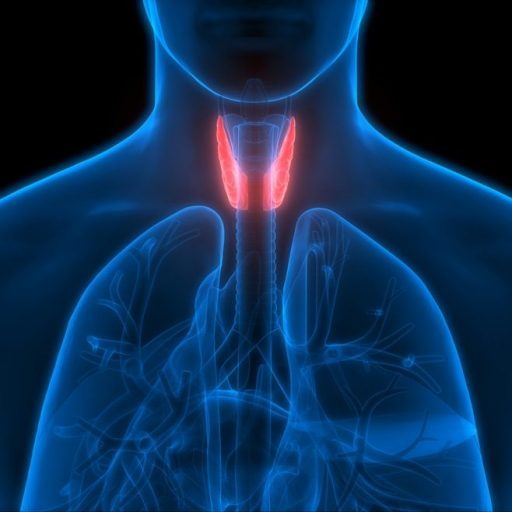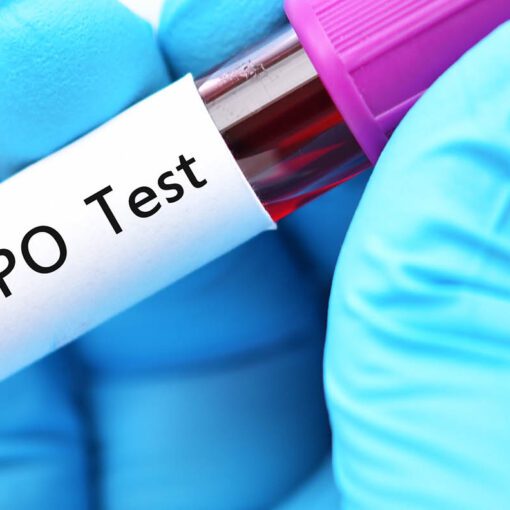Hyperthyroidism, a condition in which the thyroid gland produces excessive thyroid hormones, can significantly impact women’s lives. This article will discuss the five most common issues women face when suffering from hyperthyroidism and provide a brief overview of each.
1. Weight Loss
One of the most common issues women with hyperthyroidism experience is sudden and unexplained weight loss. This occurs because the overactive thyroid gland increases the body’s metabolism, causing it to burn calories at a faster rate than usual. Weight loss can be distressing for women, as it may lead to a loss of muscle mass and overall weakness.
We look into the causes of weight loss in women with hyperthyroidism and suggest coping strategies to maintain a healthy weight.
Causes of Weight Loss:
- Increased Metabolism: The primary cause of weight loss in women with hyperthyroidism is an increased metabolism. The overactive thyroid gland produces excessive hormones, causing the body to burn calories at a rapid rate. This results in sudden, unexplained weight loss.
- Appetite Changes: Women with hyperthyroidism might experience fluctuations in appetite. While some may have an increased appetite, others may lose interest in food altogether. Both scenarios can lead to weight loss, and it’s essential to monitor eating habits.
- Gastrointestinal Issues: Hyperthyroidism can cause gastrointestinal problems, such as diarrhea, making it difficult for the body to absorb nutrients properly. This can contribute to weight loss and malnutrition, especially if left untreated.
Coping Strategies for Weight Loss:
- Regular Monitoring: Women with hyperthyroidism should monitor their weight regularly to detect any sudden changes. Keeping a weight journal can be helpful in tracking fluctuations and identifying potential triggers.
- Balanced Diet: Maintaining a balanced diet is crucial for women experiencing weight loss due to hyperthyroidism. Consuming nutrient-rich foods, including lean proteins, whole grains, fruits, vegetables, and healthy fats, can provide the body with essential nutrients and help maintain weight.
- Smaller, Frequent Meals: Eating smaller, more frequent meals can help stabilize metabolism and prevent significant fluctuations in blood sugar levels. This approach can be beneficial for women who have an increased appetite or experience gastrointestinal issues.
- Seek Professional Help: If weight loss becomes a significant concern, women with hyperthyroidism should consult a healthcare professional, such as an endocrinologist or a registered dietitian. They can help develop a personalized nutrition plan and monitor progress.
- Manage Stress: Stress can exacerbate hyperthyroid symptoms and affect eating habits. Practicing stress management techniques, such as deep breathing exercises, meditation, or yoga, can help improve overall well-being and support a healthy weight.
2. Irregular Menstrual Cycle
Hyperthyroidism often leads to menstrual irregularities in women, including lighter or heavier periods, shorter or longer cycles, and even missed periods. These irregularities are caused by an imbalance in hormone production, which directly affects the menstrual cycle. These changes can lead to fertility issues and emotional stress for women.
Causes of Irregular Menstrual Cycles:
- Hormonal Imbalance: The primary cause of irregular menstrual cycles in women with hyperthyroidism is hormonal imbalance. Excessive thyroid hormones can disrupt the delicate balance of estrogen and progesterone, leading to changes in the menstrual cycle.
- Increased Metabolism: Hyperthyroidism causes increased metabolism, which can impact the reproductive system. This increased metabolic rate may lead to shorter or longer menstrual cycles and changes in the duration and heaviness of periods.
Effects of Irregular Menstrual Cycles:
- Fertility Issues: Menstrual irregularities can cause difficulties in conceiving for women with hyperthyroidism. Hormonal imbalances can hinder ovulation, making it challenging to predict fertile periods and conceive naturally.
- Emotional Stress: Irregular menstrual cycles can be a source of emotional stress for women. The uncertainty surrounding their cycles can lead to feelings of anxiety and frustration, impacting their overall well-being.
- Anemia: Heavy or prolonged bleeding during periods can cause anemia, a condition in which the body lacks sufficient red blood cells. Anemia can lead to fatigue, weakness, and shortness of breath.
Management Strategies:
- Track Menstrual Cycles: Women with hyperthyroidism should track their menstrual cycles to identify patterns and changes. Using a menstrual tracking app or a calendar can help detect irregularities and provide valuable information for healthcare professionals.
- Stress Management: Stress can exacerbate hormonal imbalances, contributing to menstrual irregularities. Practicing stress management techniques such as deep breathing exercises, yoga, or meditation can help maintain hormonal balance and promote regular cycles.
- Nutritional Support: A balanced diet rich in essential nutrients can support hormonal balance and overall reproductive health. Consuming iron-rich foods like leafy greens and lean meats can help prevent anemia caused by heavy menstrual bleeding.
- Consult a Healthcare Professional: Women with irregular menstrual cycles should consult their healthcare provider for proper evaluation and guidance. A healthcare professional can recommend appropriate tests, treatments, and management strategies based on individual circumstances.
3. Anxiety and Mood Swings
Women with hyperthyroidism may experience increased anxiety and mood swings due to the hormonal imbalance. The excessive thyroid hormone can cause a heightened sense of nervousness, irritability, and restlessness, affecting daily activities and interpersonal relationships. This emotional turmoil can be challenging to cope with and may require professional help.
Causes of Anxiety and Mood Swings:
- Hormonal Imbalance: Excessive thyroid hormones can directly affect the brain’s neurotransmitter levels, leading to anxiety and mood swings in women with hyperthyroidism. These hormonal imbalances can disrupt emotional stability and well-being.
- Physical Symptoms: The physical symptoms of hyperthyroidism, such as palpitations, tremors, and excessive sweating, can mimic anxiety, exacerbating feelings of unease and restlessness.
Impact of Anxiety and Mood Swings:
- Daily Functioning: Anxiety and mood swings can negatively affect women’s daily functioning, making it difficult to concentrate, make decisions, and maintain a consistent energy level throughout the day.
- Interpersonal Relationships: Mood swings and anxiety can strain interpersonal relationships, as women with hyperthyroidism may become irritable, impatient, or overly emotional, making communication and understanding more challenging.
- Quality of Life: Persistent anxiety and mood swings can significantly impact women’s overall quality of life, leading to feelings of isolation, helplessness, and depression if left unaddressed.
Coping Strategies:
- Stress Management: Practicing stress management techniques, such as deep breathing exercises, meditation, or yoga, can help women with hyperthyroidism manage anxiety and mood swings by promoting relaxation and mental clarity.
- Exercise: Regular exercise can help alleviate anxiety and stabilize mood by releasing endorphins, the body’s natural feel-good chemicals. Aim for at least 30 minutes of moderate-intensity exercise most days of the week.
- Sleep Hygiene: Maintaining good sleep hygiene is crucial for emotional stability. Establish a consistent sleep schedule, create a relaxing bedtime routine, and avoid caffeine and electronic devices before bedtime to promote restorative sleep.
- Support Network: Building a strong support network of friends, family, and healthcare professionals can help women with hyperthyroidism cope with anxiety and mood swings by providing understanding, encouragement, and guidance.
- Professional Help: If anxiety and mood swings become unmanageable, women should consider seeking professional help from a mental health professional, such as a therapist or counselor, experienced in treating individuals with thyroid disorders.
4. Fatigue and Weakness
Despite increased energy levels due to a faster metabolism, women with hyperthyroidism often feel fatigued and weak. This is because the body is working overtime to keep up with the increased metabolic demands, leading to exhaustion. This persistent fatigue can hinder day-to-day functioning and significantly impact a woman’s quality of life.
Causes of Fatigue and Weakness:
- Increased Metabolism: Hyperthyroidism leads to an increased metabolism, causing the body to work harder to keep up with its energy demands. This extra effort can result in persistent fatigue and weakness.
- Sleep Disturbances: Women with hyperthyroidism may experience sleep disturbances, such as insomnia or restless sleep, which can contribute to fatigue. A lack of quality sleep can make it difficult to recover from daily activities, leading to constant exhaustion.
- Anemia: Heavy or prolonged menstrual bleeding, a common issue in women with hyperthyroidism, can cause anemia. Anemia can result in fatigue and weakness due to insufficient oxygen delivery to the body’s tissues.
Strategies to Alleviate Fatigue and Weakness:
- Prioritize Sleep: Establishing a regular sleep schedule and creating a relaxing bedtime routine can help improve sleep quality. Avoiding caffeine, alcohol, and electronic devices before bedtime can also promote restful sleep.
- Balanced Diet: A balanced diet rich in essential nutrients can help combat fatigue and weakness. Consuming complex carbohydrates, lean proteins, and healthy fats can provide sustained energy throughout the day.
- Exercise: Regular, moderate exercise can help boost energy levels and improve overall well-being. However, it’s important not to overexert oneself, as excessive exercise can exacerbate fatigue in women with hyperthyroidism.
- Stay Hydrated: Dehydration can contribute to fatigue and weakness. Women with hyperthyroidism should ensure they drink enough water throughout the day to stay properly hydrated.
- Rest and Self-Care: Listening to the body’s signals and allowing time for rest and self-care is crucial for women with hyperthyroidism. Taking breaks when needed and engaging in relaxing activities can help prevent burnout and alleviate fatigue.
5. Hair Loss and Skin Changes
Hyperthyroidism can cause hair loss and skin changes in women. The excessive hormone production can lead to thinning hair and even hair loss, impacting self-esteem and confidence. Additionally, women may experience skin changes such as increased perspiration, warm and moist skin, or rashes due to the overactive thyroid gland.
Causes of Hair Loss and Skin Changes:
- Hormonal Imbalance: Excessive thyroid hormones can disrupt the normal growth cycle of hair, leading to hair thinning and loss. These hormonal imbalances can also cause skin changes, such as increased perspiration, warm and moist skin, or rashes.
- Nutrient Deficiencies: Increased metabolism in women with hyperthyroidism can lead to nutrient deficiencies, contributing to hair loss and skin issues. A lack of essential vitamins and minerals can negatively impact hair and skin health.
Effects on Women’s Health:
- Self-esteem and Confidence: Hair loss and skin changes can significantly impact a woman’s self-esteem and confidence. These issues can cause emotional distress, affecting daily life and personal relationships.
- Physical Discomfort: Skin changes like rashes or excessive perspiration can cause physical discomfort, hindering daily activities and overall well-being.
Management Strategies:
- Balanced Diet: A balanced diet rich in essential nutrients is vital for maintaining healthy hair and skin. Consuming foods high in vitamins, minerals, and healthy fats can help address nutrient deficiencies and support overall well-being.
- Gentle Hair Care: Women experiencing hair loss should adopt gentle hair care practices, such as using a wide-toothed comb, avoiding tight hairstyles, and limiting the use of heat-styling tools. These habits can help reduce additional hair breakage and loss.
- Hydration and Moisturization: Staying hydrated and using a gentle moisturizer can help alleviate skin dryness and irritation. Drinking enough water and applying a fragrance-free, hypoallergenic moisturizer can help maintain healthy skin.
- Consult a Dermatologist: If hair loss and skin changes become significant concerns, women should consult a dermatologist. A dermatologist can assess the severity of the issue, recommend appropriate treatments, and provide guidance on managing these concerns.
Treatment of Hyperthyroidism:
Addressing the underlying cause of hyperthyroidism is essential in managing the before mentioned issues. Treatment options include:
- Medication: Anti-thyroid medications, such as methimazole or propylthiouracil, can help regulate thyroid hormone production and alleviate symptoms, including weight loss, menstrual irregularities, anxiety, fatigue, and hair loss.
- Radioactive Iodine: Radioactive iodine therapy can help shrink the thyroid gland, decreasing hormone production. This treatment can be effective in managing weight loss, menstrual irregularities, anxiety, fatigue, and hair loss, but it may lead to hypothyroidism, requiring ongoing monitoring.
- Surgery: In some cases, surgery may be necessary to remove part or all of the thyroid gland. This approach can help manage weight loss, menstrual irregularities, anxiety, fatigue, and hair loss but may require hormone replacement therapy afterward.
A final word
Hyperthyroidism in women can lead to several issues, including weight loss, menstrual irregularities, anxiety, fatigue, and hair loss. Understanding these challenges is essential for women who suffer from this condition, as it allows them to seek appropriate treatment and support. Early diagnosis and intervention can help mitigate these issues and improve the overall quality of life for women with hyperthyroidism.
Here are two reference links related to hyperthyroidism, its symptoms, and treatment options, including the topics we wrote about today:
- Mayo Clinic: Hyperthyroidism (overactive thyroid) Link: https://www.mayoclinic.org/diseases-conditions/hyperthyroidism/symptoms-causes/syc-20373659
- National Institute of Diabetes and Digestive and Kidney Diseases (NIDDK): Hyperthyroidism (Overactive Thyroid) Link: https://www.niddk.nih.gov/health-information/endocrine-diseases/hyperthyroidism
These resources provide comprehensive information on hyperthyroidism, including its causes, symptoms, and treatment options. They also discuss the issues mentioned in the articles, such as weight loss, irregular menstrual cycles, anxiety, fatigue, and hair loss. However, please note that these sources might not directly correspond to every specific detail mentioned in the article, as some information may be derived from general knowledge on the topic.






